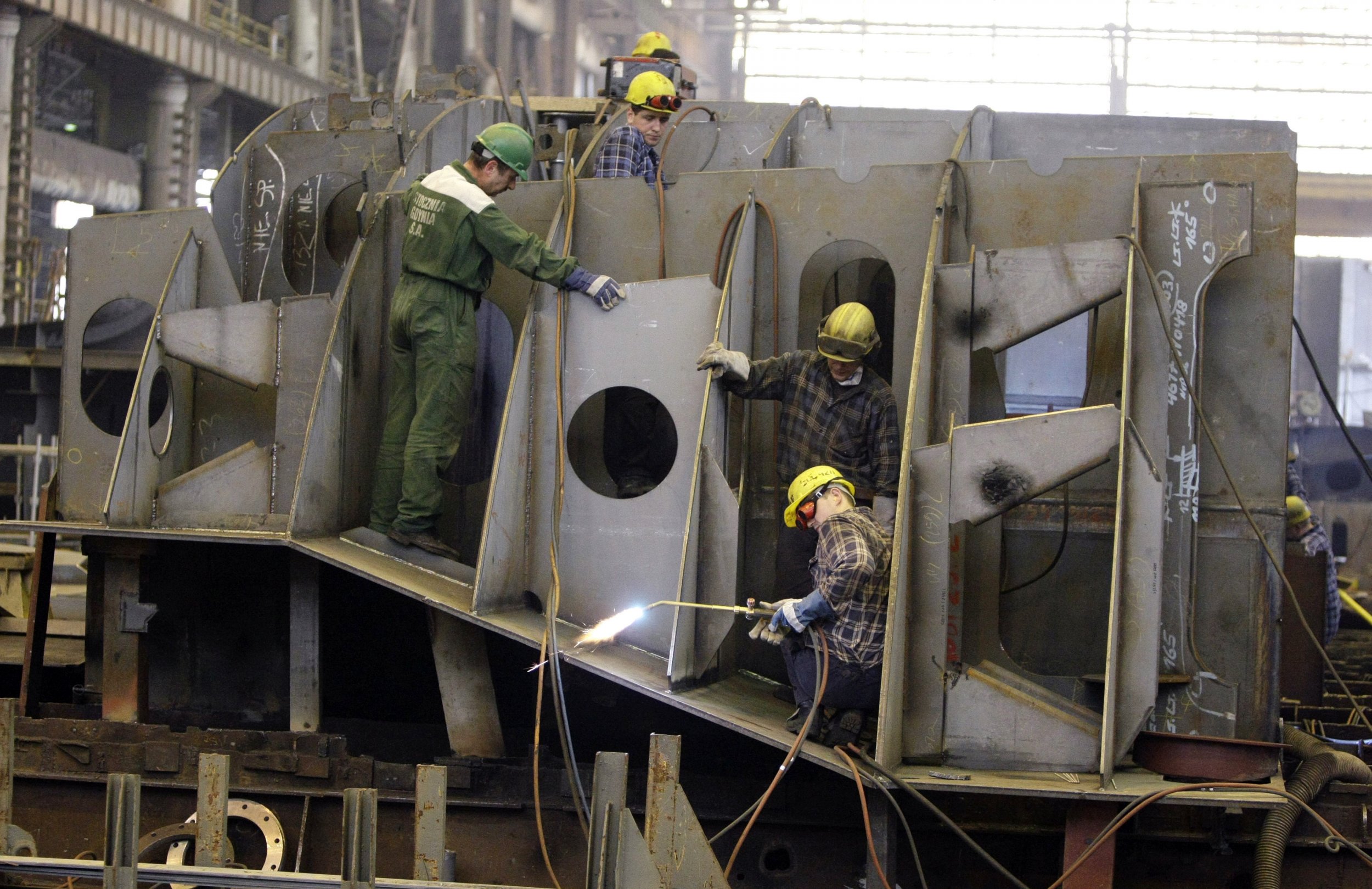
North Korean forced laborers contributed to the building of a Danish warship, according to documents obtained by Danish public broadcaster DR2 and Information newspaper.
The Danish military hired the Danish firm Karstensens Skibsværft to carry out the construction of the Royal Navy's new ship "Lauge Koch." Karstensens then subcontracted the Polish shipyard Crist to conduct part of the work between 2014 and 2016.
Crist denied that any North Korean labour was used in the construction of the ship hull, which is listed on its website under the name NB428, in a letter to the Danish shipyard in 2016.
But Crist's statement is contradicted by several of the shipyard's Polish workers who spoke on conditions of anonymity to DR2, whose documentary is scheduled for broadcasting on Tuesday night.
Crist first came under scrutiny in 2014, when a North Korean worker hired through the temporary working agency Armex, a Polish company with deep ties to North Korea, died in an incident at its shipyard in Gdynia.
According to a 2016 report from the Leiden Asia Centre titled "North Korean Forced Labour in the EU, the Polish Case," Armex hired workers supplied by a North Korean company called Korea Rungrado Trading Corporation, which is run by a committee of the ruling Workers' Party of Korea.
Armex is led by a Polish national called Cecylia Kowalska, who also heads another company that hires North Koreans and employs them in Gdansk's Nauta shipyard.
According to the report, Crist and Nauta's shipyards are located adjacently to one another and a Polish labour inspection in February 2016 found 19 North Koreans working in a shipyard owned by Nauta, which also works on NATO military vessels and is NATO certified.
The conditions in which North Korean laborers work "tick all the boxes of human trafficking," Remco Breuker, a professor of Korean Studies at Leiden University who co-authored the forced labor report, tells Newsweek.
North Korean workers' passports are taken away, they live isolated lives, they can't refuse work, and don't get paid well. Several of the workers eventually return to North Korea, but what happens to them then is not know.
As most of the North Korean workers' salary is taken directly to North Korea, the Danish newspaper alleges that taxpayers' money may have ended up financing Pyongyang's regime and nuclear activities as a result of the ship construction.
The Danish investigation refers to invoices between the Polish employment agency and the North Korean company that include the name of the ship as evidence of the employment of North Korean forced laborers on the project.
A defense ministry spokesperson however told the newspaper the evidence was not conclusive, and defense minister Claus Hjort Frederiksen said in an email that the use of forced laborers would be "completely outrageous," but he won't be investigating the matter further.
Breuker tells Newsweek the Danish allegations are plausible, and that responsibility for allowing North Korean forced laborers on the project should be shared among all the players in the chain.
"There are very many places where to place the responsibility each and every one in chain of liability has failed, and that's not a new story because it happened before," he said, adding however that the majority of the cases involving the use of North Korean forced labor concern the private sector.
Poland eventually banned the issuing work visa to North Korea nationals in 2016.
Uncommon Knowledge
Newsweek is committed to challenging conventional wisdom and finding connections in the search for common ground.
Newsweek is committed to challenging conventional wisdom and finding connections in the search for common ground.
About the writer
Sofia Lotto Persio reports mainly on Asia and gender issues for Newsweek. She previously covered international affairs with a specific ... Read more
To read how Newsweek uses AI as a newsroom tool, Click here.








